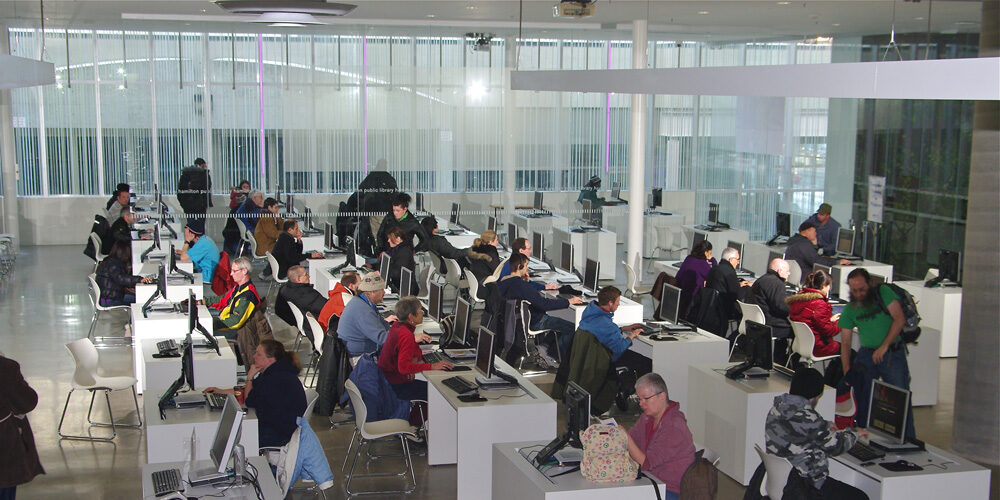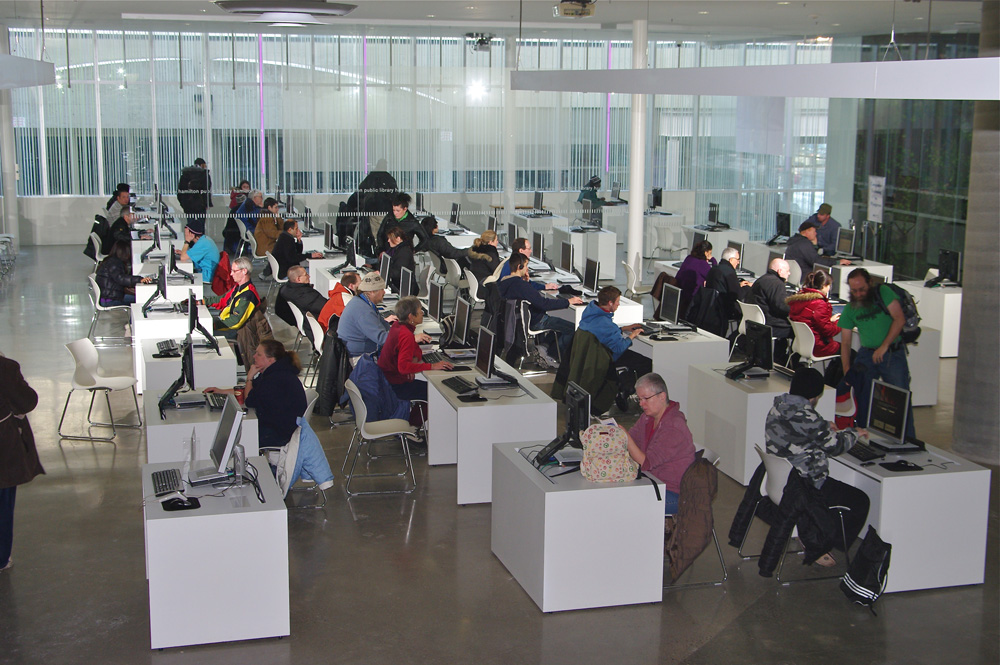Public libraries are key community providers of e-learning and digital resources. While continuing to fulfill traditional roles, they are also evolving programs and collections to support digital literacy. To meet these demands, the Hamilton Public Library partnered with ORION to improve online access for their clients and foster life-long learning while still meeting their budgetary targets.
Hamilton Public Library had a problem: It needed to meet the growing demand for online access and digital content without increasing the cost of maintaining high-speed Internet access and wifi connections for users at its 23 library branches.
It’s all part of the evolution of the library, says Paul Takala, chief librarian. He approached ORION for help, and in late 2010, the Hamilton Public Library was connected to ORION’s ultra-fast broadband network.
Working with ORION is a perfect solution, says Lita Barrie, the director of digital technology and youth services at the library. “Since 2010 we’ve seen a huge move to our visitors wanting to consume media through the Internet,” says Barrie. “I don’t know that we would be able to offer the type of service that we currently offer without ORION’s support.”
That support means “we’ve been able to allow our community members and customers to access what they want to access,” says Barrie.
This includes 425,000 hours of Internet use which is sometimes devoted to everyday tasks — library patrons checking their email or using social media to keep in touch with friends and family. Other users access educational resources. Many library patrons watch YouTube.
Access to the ORION network has also allowed the Hamilton Public Library to be involved in special projects such as “Our Digital World”—a digital repository of archival images and newspapers. It also means librarians can offer a wide range of technological training, from classes for people who are using computers for the first time, to advanced classes using the library’s new multimedia labs. Upcoming renovations to the central branch will see the addition of a maker space, featuring a 3-D scanner and printer, to the facilities available to library patrons.
“We’ve always been supporters of life-long learning and literacy,” says Takala. “When we work on digital literacy we’re just doing what we’ve always done, but being responsive to the needs of today and of our community.”
Takala emphasizes that computers won’t replace books, but that the way readers access books is constantly changing—and in order to stay relevant, the library needs to evolve too.
Using ORION’s network also helps with “bring your own device” (BYOD) capabilities for patrons seeking wifi connections, easier network traffic management for the library and help with fixing their ongoing costs.
“Without increasing our costs, we doubled our Internet bandwidth,” says Takala. And all that bandwidth is necessary—demand for online access continues to grow. “In 2013, we had 850,033 public computer sessions, averaging 30 minutes per session,” says Takala. That’s up from 747,000 sessions in 2012.
Barrie says conversations with her colleagues at libraries in other provinces who haven’t been able to access their own provincial version of ORION have been revealing. “They’re facing huge challenges. They’re looking to increase their bandwidth, but don’t have the capacity to do it, so they have to restrict their customers’ use.”
“We’re really pleased to be part of a network like ORION that is focused on research and education and access to information,” says Barrie. “There’s a nice synergy between keeping our costs down and increasing access, and being able to do it with an organization that shares our goals.”



